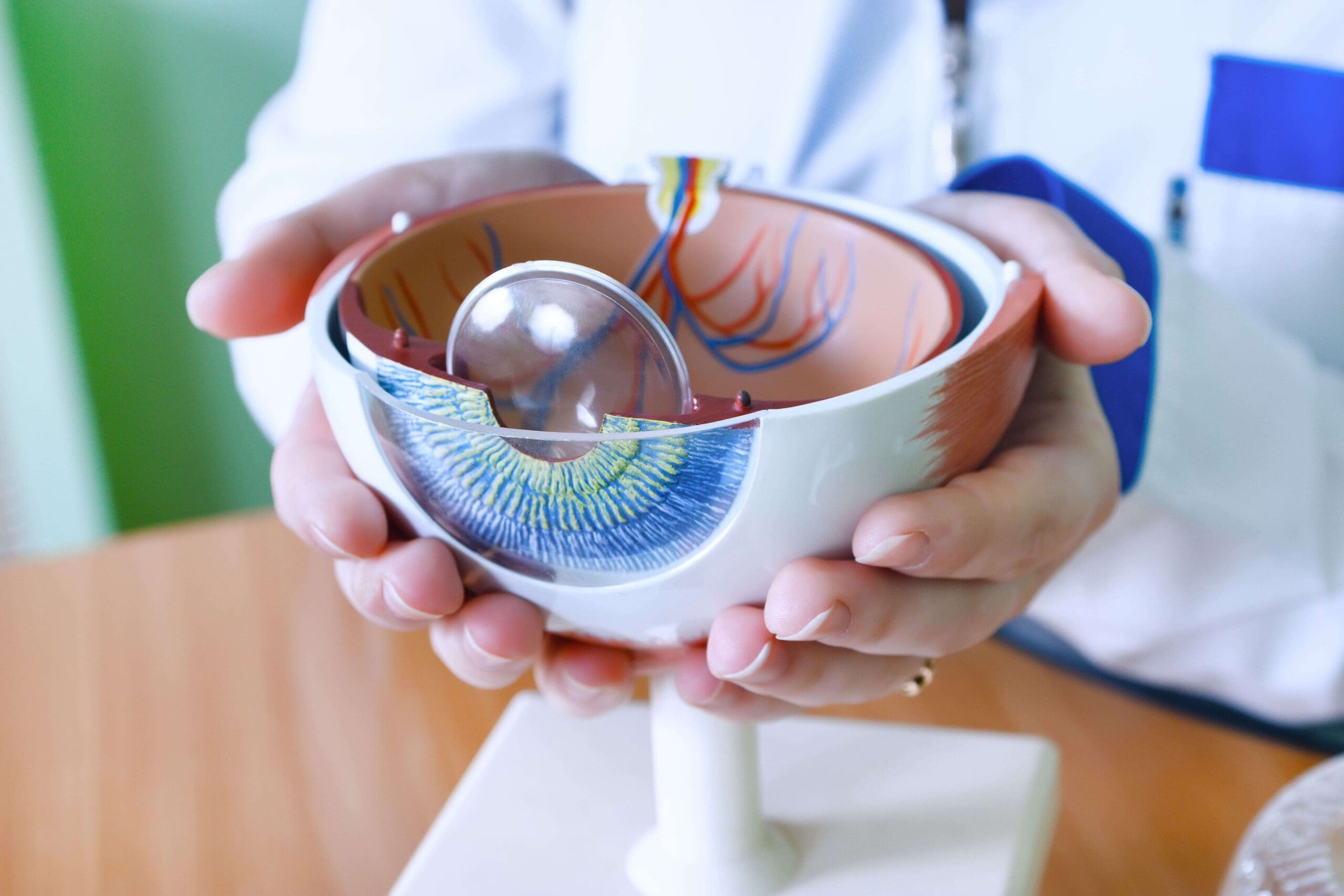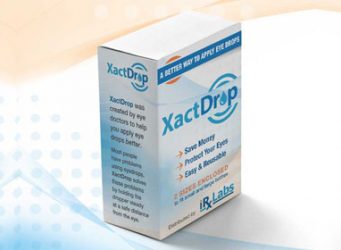Retina Health Center now offers ILUVIEN, a new treatment for diabetic macular edema recently approved by the U.S. Food and Drug Administration (FDA). Retina Health Center Drs. Hussein Wafapoor and Alexander Eaton are the first physicians in the U.S. to treat diabetic macular edema (DME) patients with ILUVIEN since the FDA approval of the ILUVIEN implant for the treatment of DME. Diabetic Macular Edema is a complication of diabetes caused by accumulation of fluid in the macula or central portion of the eye and is a leading cause of vision loss in people with diabetes.
An injectable implant, ILUVIEN is designed to release and maintain a concentration of steroids inside the eye for up to three years. A tiny tube is inserted in the back of the eye where DME typically forms, and the implant slowly releases a corticosteroid for 36 months. ILUVIEN was approved by the FDA to treat DME in patients who were previously treated with a course of corticosteroids and did not have a clinically significant rise in fluid pressure inside the eye.
“This exciting technology is able to deliver a low-dose corticosteroid drug for three years or more and offers great promise for patients with this disease,” said Eaton. “Dr. Wafapoor and I are pleased to be the first retinal specialists in the nation to offer this exciting new option for patients with diabetic macular edema.”
According to Eaton, the response of patients has been overwhelmingly positive. Prior to the approval of the ILUVIEN implant, patients typically required treatments every one to three months with Avastin, Lucentis, Eylea, Ozurdex and Triamcinolone. For patients receiving treatment with these older options, which are done by injecting a medication into the patients’ eye, the prospect of reducing the number of treatments from 36 to 1, in the best case scenario, to somewhere in between in patients with more advanced disease, is a positive one.
“Hopefully, this will be the first of many advances that will help reduce the number of treatments for patients who receive frequent injections. We are excited that Retina Health Center is the first site selected to offer this promising medication, and we continue to work to bring new groundbreaking treatments to our patients as soon as they become available,” added Eaton.
The ILUVIEN approval was based on clinical trial data, which showed that at month 24 after receiving the ILUVIEN implant, 28.7 percent of patients experienced an improvement of 15 letters or more from baseline in their best corrected visual acuity on the Early Treatment Diabetic Retinopathy Study (ETDRS) eye chart. In other words, 28.7 percent of patients were able to see an improvement of three lines or more in their vision on the eye chart at the end of two years. By week 3 of follow-up, patients treated with ILUVIEN experienced a statistically significant improvement in visual acuity compared to the control group, and they maintained a statistically significant advantage over the control through completion of the trial at month 36.
Tommie Gibson, who lives in North Fort Myers, received an ILUVIEN implant in his right eye on Jan. 22. In the past, he has required numerous eye injections of Lucentis and Triesence, and he is excited about the prospect of going three years without another treatment. Since receiving the very small device, which is significantly smaller than the lead of a pencil, Gibson has noticed an improvement in his vision.
“Shortly following the ILUVIEN implant insertion, he has been able to read with the right eye using reading glasses, which he was not able to do before,” said Eaton. “His distance vision has also improved, and he can now see birds at a distance with that eye, something he could not do before the implant. It has been less than two months since he received the device, and he is looking forward to many more years of great vision without the need of additional injections.”
Joan Kurek, who lives in Naples, received her ILUVIEN implant on Feb. 6 and is pleased with the progress she has seen.
“I’m now able to read fine print, like the numbers on a business card or the zip code on mail, which I was not able to do before the treatment,” said Kurek. “Overall, my experience has been positive and it’s helping me regain my self-confidence.”
While some patients with more advanced disease may require combination treatments that include the older medications, the combined therapy in those patients seems to be working better and faster than monotherapy with the older agents and should result in better vision over the life of the device.
“For patients with diabetic macular edema receiving frequent eye injections, as well as those with an incomplete response to Avastin, Eylea and Lucentis, this is a great option,” said Eaton.
For patients with vascular disease who have had a stroke or heart attack, there is evidence to suggest that use of Avastin, Lucentis and Eylea may increase the risk of a stroke or heart attack. In addition, long term use of Avastin, Lucentis and Eylea can lead to elevated intraocular pressure, glaucoma, optic nerve damage and vision loss. ILUVIEN does not pose similar risks. While in some patients ILUVIEN may cause a rise in eye pressure, called ocular hypertension, in those eligible for the device under FDA guidelines, the FAME study found that ocular hypertension was manageable with eye drops. Although in patients who have not had cataract surgery, ILUVIEN will cause a cataract to develop, cataracts can be expertly managed by the many excellent cataract surgeons in the area. As with any medication, the benefits and risks of ILUVIEN should be reviewed with your eye doctor prior to use.
Eaton suggests that patients receiving monthly or frequent injections should ask their eye doctor whether they would be a good candidate for this device. As the first and most experienced physicians using this device in the U.S., Drs. Wafapoor and Eaton are also available to help determine if ILUVIEN is an option for those who are considering it.
Retina Health Center and the Macular Degeneration Research Center were established in 2002 by Dr. Alexander M. Eaton, a long-time Southwest Florida resident, who has been practicing ophthalmology in Lee and Collier counties for more than 20 years. Dr. Eaton has been the principal investigator for numerous studies to prevent and treat macular degeneration, and has invented numerous medical devices for use by patients and physicians that are used worldwide. For more information on the latest studies or to make an appointment, call 239-337-3337 in Fort Myers or 239-793-5200 in Naples











